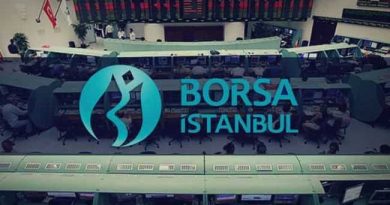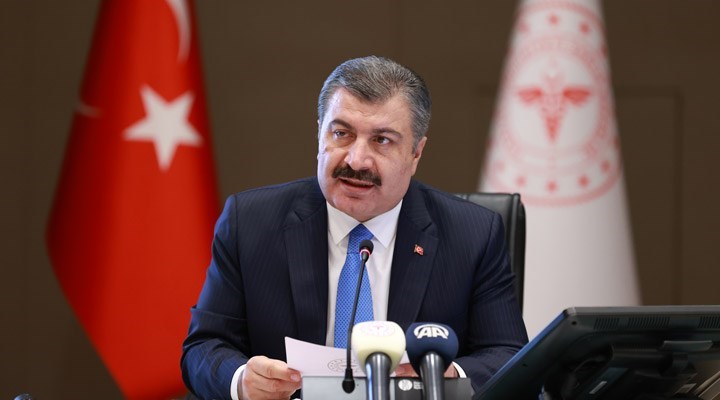“Iran-Gulf-Egypt Triangle in BRICS”

The BRICS group, which aims to position itself as a power center against Western alliances, has entered a process of expansion for the first time since 2010, by including 6 countries, including the oil-rich Saudi Arabia, Iran, the United Arab Emirates (UAE), and Egypt, which are the largest economies in the Middle East region. This move is intended to enhance its international influence vis-à-vis the West.
In fact, this has realized and global politics may (will) have to show us very different pictures as compared to expected earlier, in the time ahead. This certainly has to do with changing / weakening role of the US in the region – which is a major issue for the States, it goes without saying. Regarding all these points a very prominent journalist (opinion leader) has written a very important article painting the most recent picture in the region. We are translating and sharing this valuable work with our sincerest thanks.
“THE IRAN-GULF-EGYPT TRIANGLE IN BRICS”
(by Mehmet Ali GÜLLER – Cumhuriyet)
The historic summit of BRICS concluded as expected with decisions on expansion and increasing the role of national currencies. Out of the official 23 membership applications, 6 were accepted. Egypt, Ethiopia, Iran, Saudi Arabia, the United Arab Emirates, and Argentina will become BRICS members starting from January 1, 2024. The new BRICS with 5+6 members will no longer be coded with the initials of countries but rather…
So, what effects will the “Expanded BRICS” have on Turkey and the region?
BRICS AS A PRODUCER
With the expansion, BRICS has also become the club of the world’s largest oil producers. 6 out of the top 9 oil producers are now in BRICS.
According to purchasing power parity, BRICS holds a share of 37.3% in the global economy, while the G7’s share is 29.9%. In terms of industrial production, BRICS has surpassed the G7: BRICS’ share is 38.3%, and the G7’s share is 30.5%. The gap widens even further in basic agriculture and mining production.
Africa is of great importance to BRICS. Ethiopia holds special significance due to its leadership in the formation of the African Union and hosting its headquarters.
Although Egypt is an African country, it is also a significant country in our region, the Middle East. The membership of Egypt, Iran, Saudi Arabia, and the United Arab Emirates in BRICS is of critical importance.
LOSS FOR THE US IN THE GULF
For readers of Ufuk Ötesi, this situation would not be surprising. For a while now, we have examined the effects of Saudi Arabia-China relations on the economy and the repair of problematic relations in the region.
China’s reconciliation between Saudi Arabia and Iran has had effects ranging from economics to solving issues from Yemen to Palestine. Saudi Arabia, which is a fundamental pillar of the “petrodollar” system, becoming a member of BRICS is an evident defeat for the United States. In this context, we can interpret the following words of Chairman of the Joint Chiefs of Staff General Milley after the expansion: “The region is the main source of oil and energy resources. I can’t imagine the US leaving the Middle East.”
The membership of Egypt, Iran, and the two Gulf countries, Saudi Arabia and the United Arab Emirates, in BRICS will undoubtedly affect the entire Middle East, starting from the Gulf region. The US, which has built its strategy in the Gulf on the Iran-Saudi rivalry and even formed an anti-Iran front for the security of Israel, is sending ships to the Gulf and troops to Syria in recent weeks because it sees this upcoming scenario.
THE ASTANA-BRICS CONNECTION
The Iran-Gulf-Egypt triangle will affect not only the region but also Turkey. For Turkey, the Iran-Gulf-Egypt triangle in BRICS is not a competitor but a partner. Two members of BRICS, Russia, and Iran, are also members of the Astana Platform. Turkey’s normalization with Syria and involving Iraq in Astana will strengthen the Astana-BRICS connections.
There is no other realistic option anyway. The chances of US projects like the Turkish-Kurdish-Jewish alliance, once concocted in Pentagon-CIA laboratories, taking root in the region have dwindled.
Therefore, apart from evaluating Ankara’s participation in Astana-BRICS cooperation and even its potential membership in BRICS through the prism of the region’s triangle, there is no realistic and advantageous alternative.





